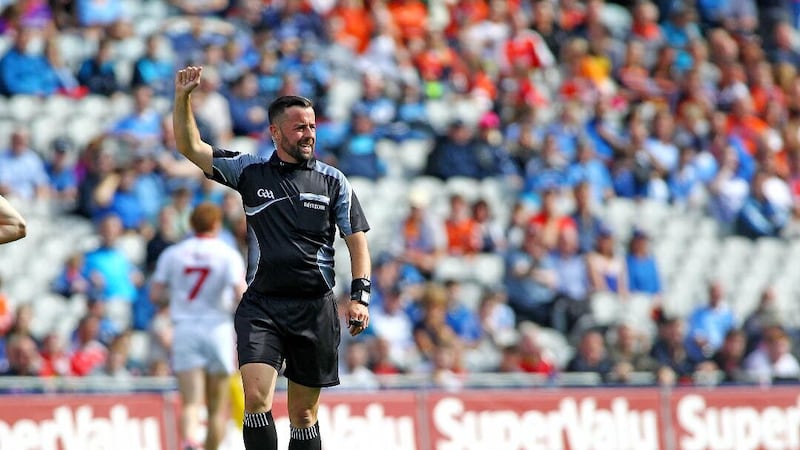HAVING spent the last few days chewing his way through bowls full of indignation as if he were munching handfuls of mints from the speaker's sweetie jar, Peter Robinson will today address the assembly.
It seems he will now do so as first minister, though whether this week's events eventually trigger his resignation or the collapse of devolution remains to be seen. The sad truth not only for Mr Robinson but also for the whole power-sharing apparatus at Stormont is that a great many people don't really care.
The DUP leader's OTT reaction to the OTR debacle left him with little room for manoeuvre, particularly his demand - which seemed ill-judged at the time but now looks naive - that the British government rescind the 'letters of comfort'. Mr Robinson delivered his ultimatum in that habitually angry fashion he has perfected over a long political career, with a look on his face blacker than a road mender's gloves and his voice stabbing the air like a pneumatic drill, hard, clipped sentences tumbling staccato against one another.
Prime Minister David Cameron may have yesterday tossed Mr Robinson a lifeline in the form of a judge-led inquiry into the administration of the scheme - which seems eminently sensible given the farce around the issuing of the letter which John Downey was able to rely upon - but this is still a long way from satisfying the DUP's unambiguous demand for the letters to be rescinded.
As most people realised, the difficulties in meeting this condition were insurmountable for a number of reasons. Chief among these, as the Old Bailey judge in the Downey case identified, is the idea that the public interest in proceeding with the prosecution was significantly outweighed by the need to hold "officials of the state to promises they have made in the full understanding of what is involved in the bargain".
The DUP belatedly realised that this was the case, an indirect admission that Mr Robinson had overplayed his hand. The drip-drip of revelations that DUP politicians did indeed know about the OTR scheme did little to strengthen his bargaining position. This left him with two options. he could carry out his threat and step down as first minister, which would have been entirely consistent with the position he adopted since the Downey decision was made public.
But he has chosen the other way and will today, as he did last night, attempt to spin Mr Cameron's decision to set up a "full, independent inquiry" as a glorious victory, and try to pretend that the whole 'rescind or resign' statement was a figment of everyone's imagination.
This, of course, will be great news for Jim Allister and the TUV who can use Mr Robinson's broken promise as a stick with which to poke him, a gift ahead of the european and council elections.
none of it bolsters Mr Robinson's leadership of the DUP.
A series of actions by the first minister, including pulling the plug on the Maze-Long Kesh peace centre plan last summer, have been widely interpreted as reflecting wobbles in support for his leadership, with pressure from the likes of MPs Nigel 'the mighty' Dodds and Sammy Wilson. Remaining as first minister also means Mr Robinson will have to continue to work alongside Martin McGuinness, who knew all about the OTR scheme but didn't think
it necessary to acquaint his executive colleagues with its unsavoury details.
Trust, one would have thought, should be a key ingredient in any body that styles itself as a power-sharing coalition government, and Sinn Fein has, at least if you are in the DUP, proved itself untrustworthy.
But it cannot even be said that trust is a casualty of this crisis, for it has never truly existed between the DUP and Sinn Fein. This is evidenced by the assembly's slender volume of accomplishment under their stewardship.
Things aren't great when a plastic bag tax is one of your towering achievements; plans to extend even this have been stymied, a sad metaphor for the assembly's inability to govern its way out of a paper bag.
If the institutions at Stormont had a stronger record of delivery, rather than being a monument to institutionalised inertia, then more people might care - care about whether Mr Robinson stays or goes, care about the fragility of power-sharing, care about the possibility of assembly elections.
But are things really any better than they were in 2007, when Sinn Fein and the DUP joined forces?
Beyond the existence and maintenance of its own structures, what difference has devolution, power-sharing and a locally-elected executive made?
Are A&e services at hospitals superior? Are we any further on with resolving the transfer test shambles? has sectarianism been seriously tackled and a shared future determinedly sought? has the treatment of victims of the Troubles been advanced?
It is little wonder that swathes of the population are jaded and cynical about our politics.
The OTR crisis is merely the latest booby-trap from the past to ensnare Stormont. There will be others, just as potent, if not next week, then next month, or the next, or the next. Having demonstrated their complete inability to deal with the past in a collective, agreed way as recently as the fizzling out of the Haass process, what hope is there that the past won't trip us, or Mr Robinson, up again?


